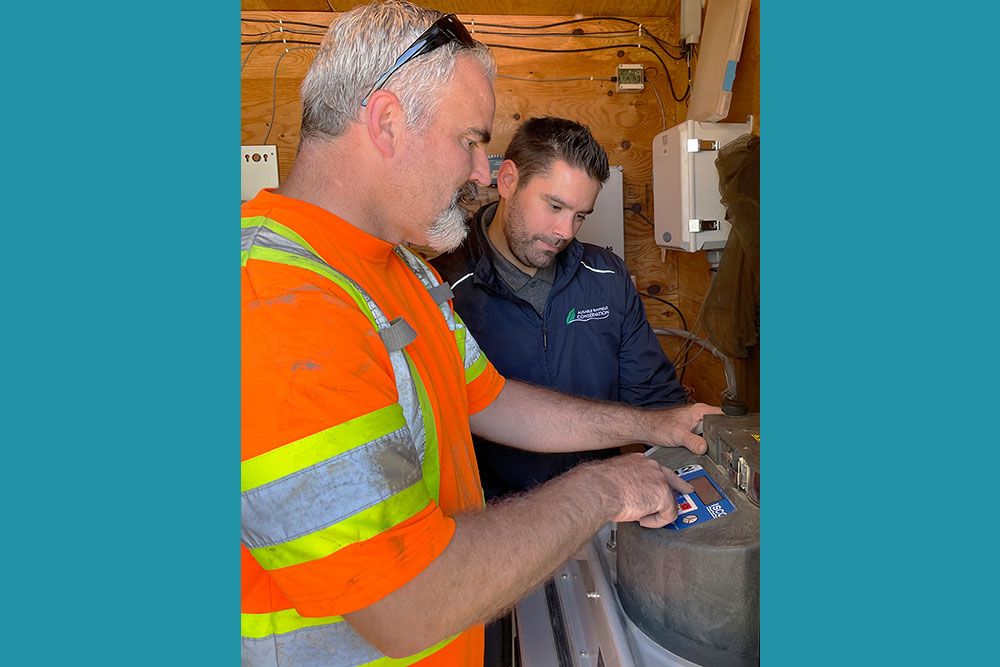Partners research water, climate in Parkhill area

Ministry, conservation authority, education partners conduct water, climate research in Parkhill
Local conservation authority staff collect, analyze local data as part of water, climate research in Parkhill Watershed
The spread of algae blooms in Lake Huron affects the health of humans, the health of the lake, and the health of the economy, according to partners in a research project in the Parkhill Watershed.
Ministry, university, and conservation authority partners are conducting local research on water, weather, and climate at the Integrated Water and Climate Station installed in 2012 near Parkhill.
In 2022, researchers from the Ontario Ministry of the Environment, Conservation, and Parks (MECP); Ontario Ministry of Agriculture, Food and Rural Affairs (OMAFRA); The University of Guelph; and Ausable Bayfield Conservation Authority (ABCA) published their findings. The research looks at how surface water (such as a creek, river, or lake) and groundwater (water under our feet in aquifers) interact in different seasons.
More intense weather events can increase the movement of sediment and nutrients (such as phosphorus and nitrogen), according to the researchers.
Davin Heinbuck, ABCA Water Resources Coordinator, said this research helps us to understand local rivers better. In some streams, such as Parkhill Creek, water is recharging groundwater resources. He says university researchers are leading the study and, in addition, conservation authority staff have maintained a data collection network at Parkhill Creek for more than 10 years, collecting data in all seasons and their insights provided local level context for this research.
“Locally, we conduct monitoring of forest conditions and surface water conditions and the data we collect and interpret and the modelling we use provide valuable information for important research projects like this one,” said Mari Veliz, ABCA Healthy Watersheds Manager. “The findings of this study are important for watershed managers across the Great Lakes basin because we now know more about the supply of water and nutrients from clay-based streams to Lake Huron.”
She also noted that, after 10 years of collecting data, the station is currently undergoing a revitalization, with some new equipment installation supported by MECP.
This article is one of a series during World Water Monitoring Challenge (EarthEcho Water Challenge).
#MonitorWater
